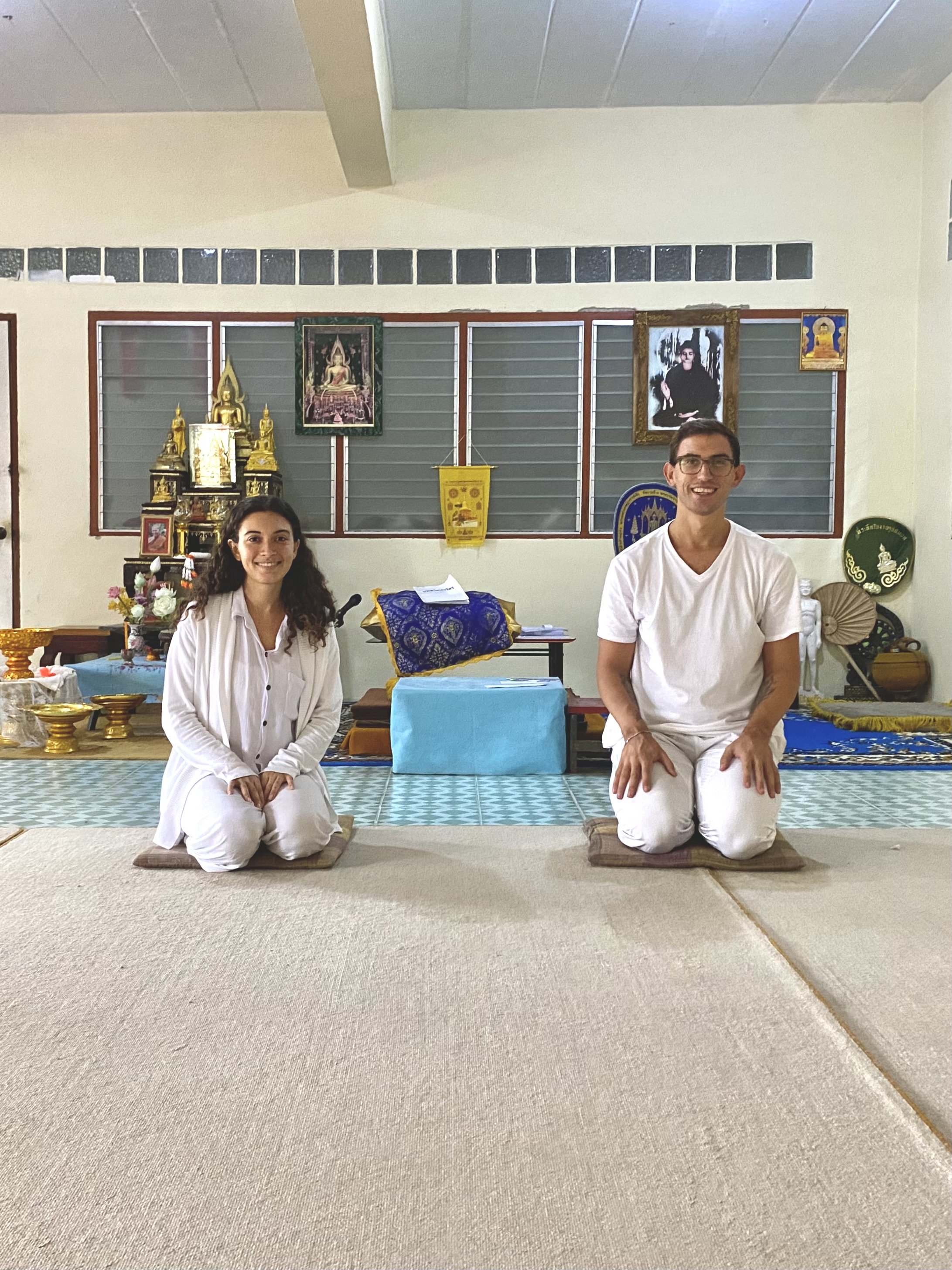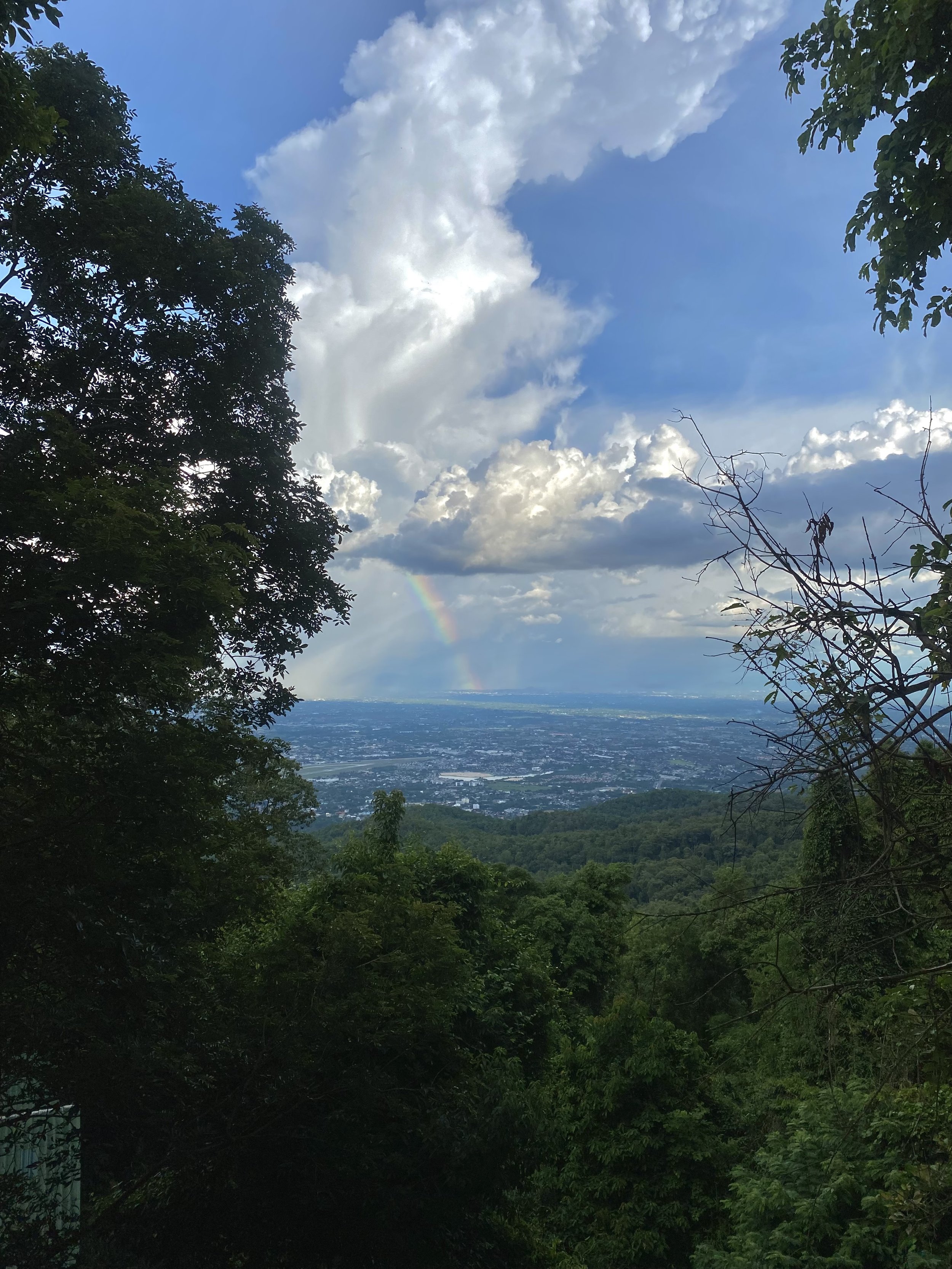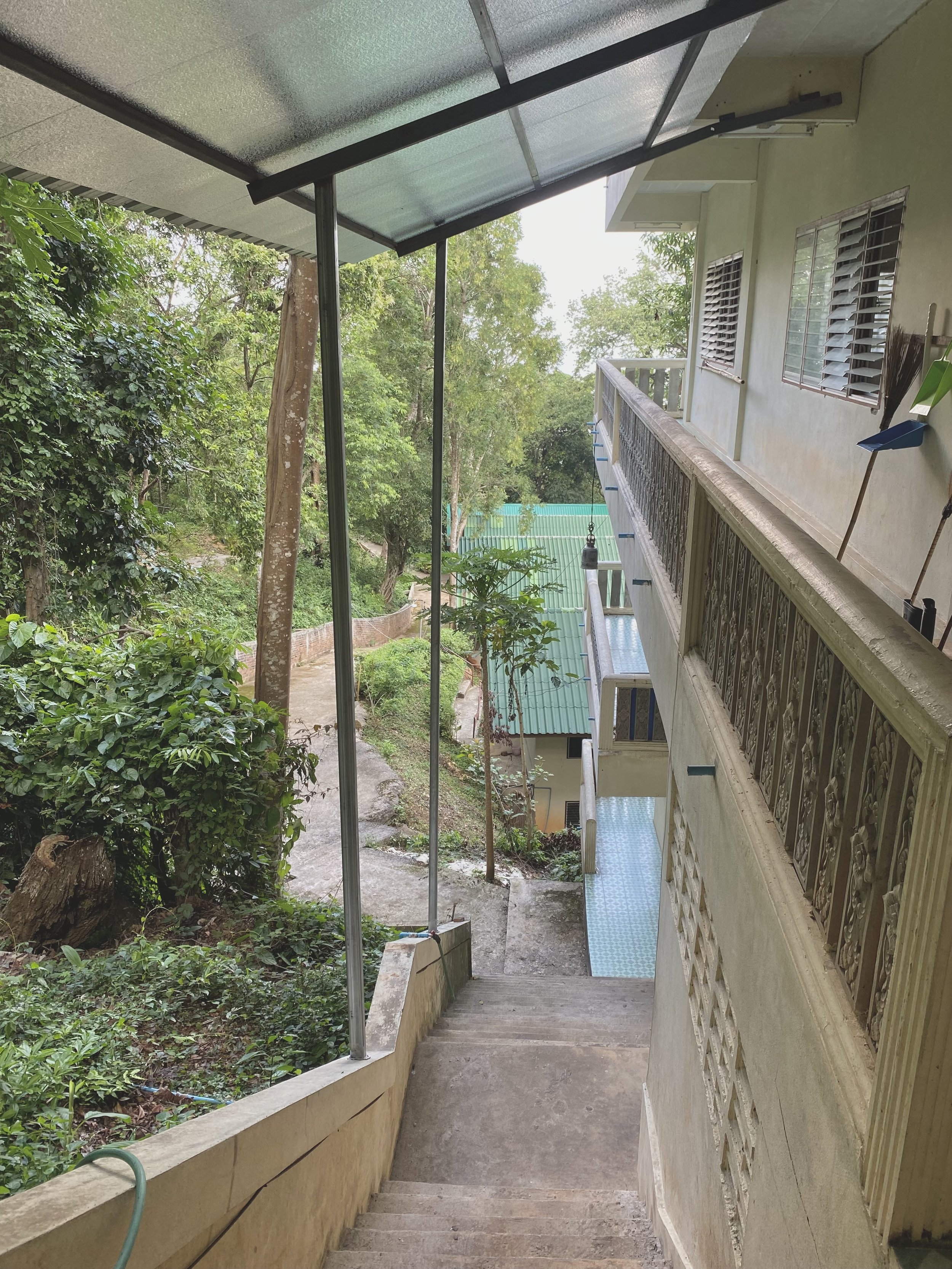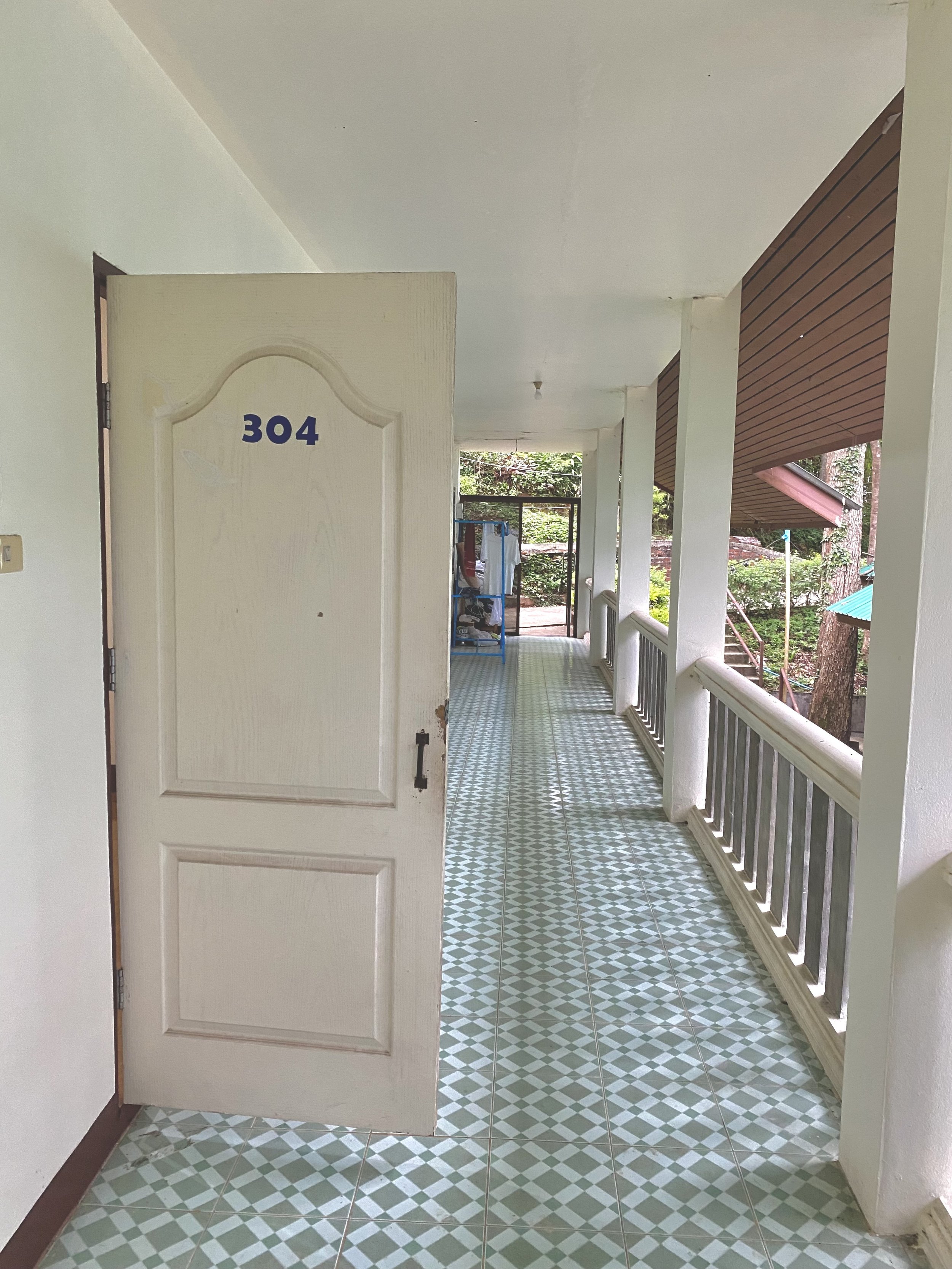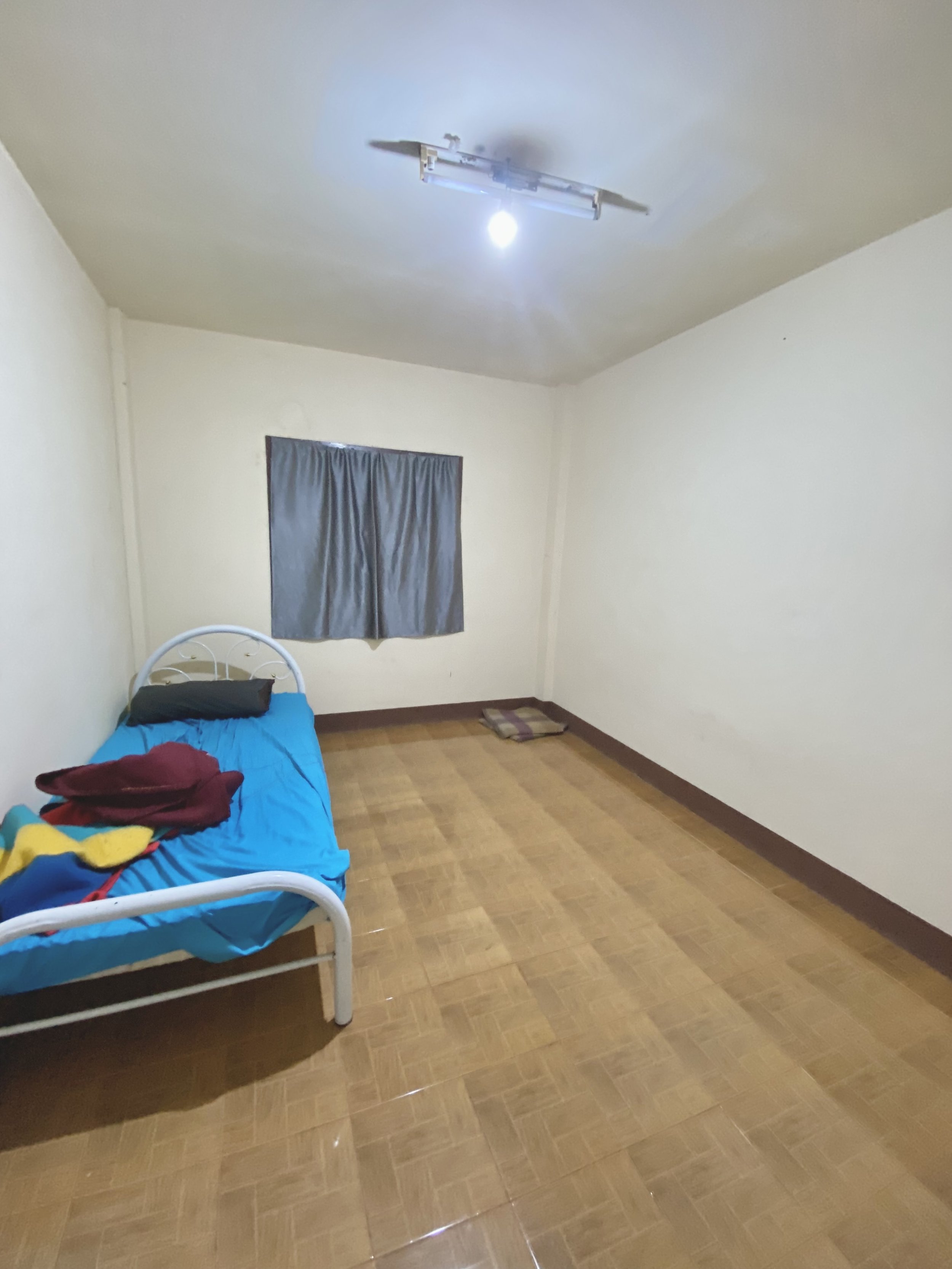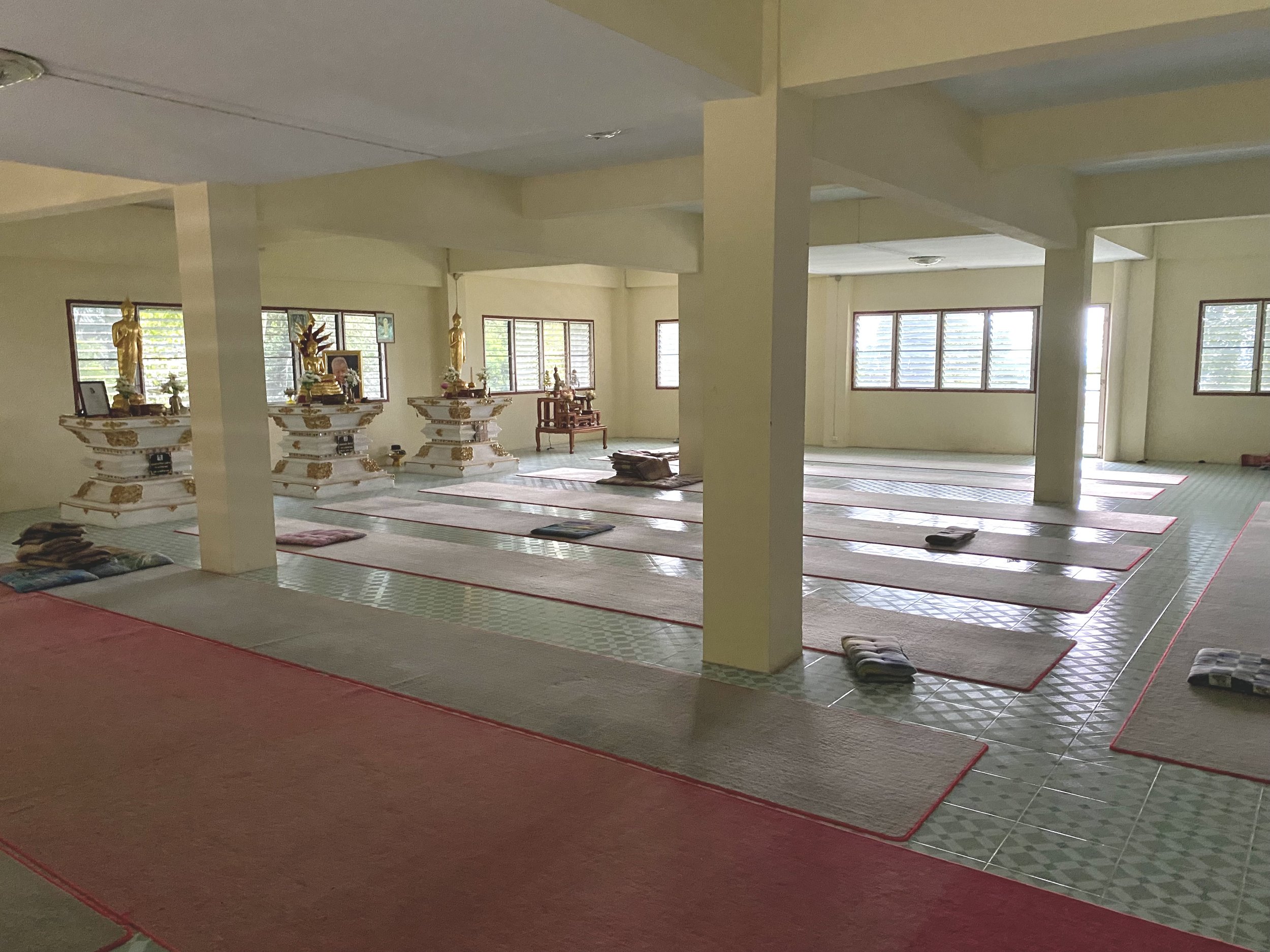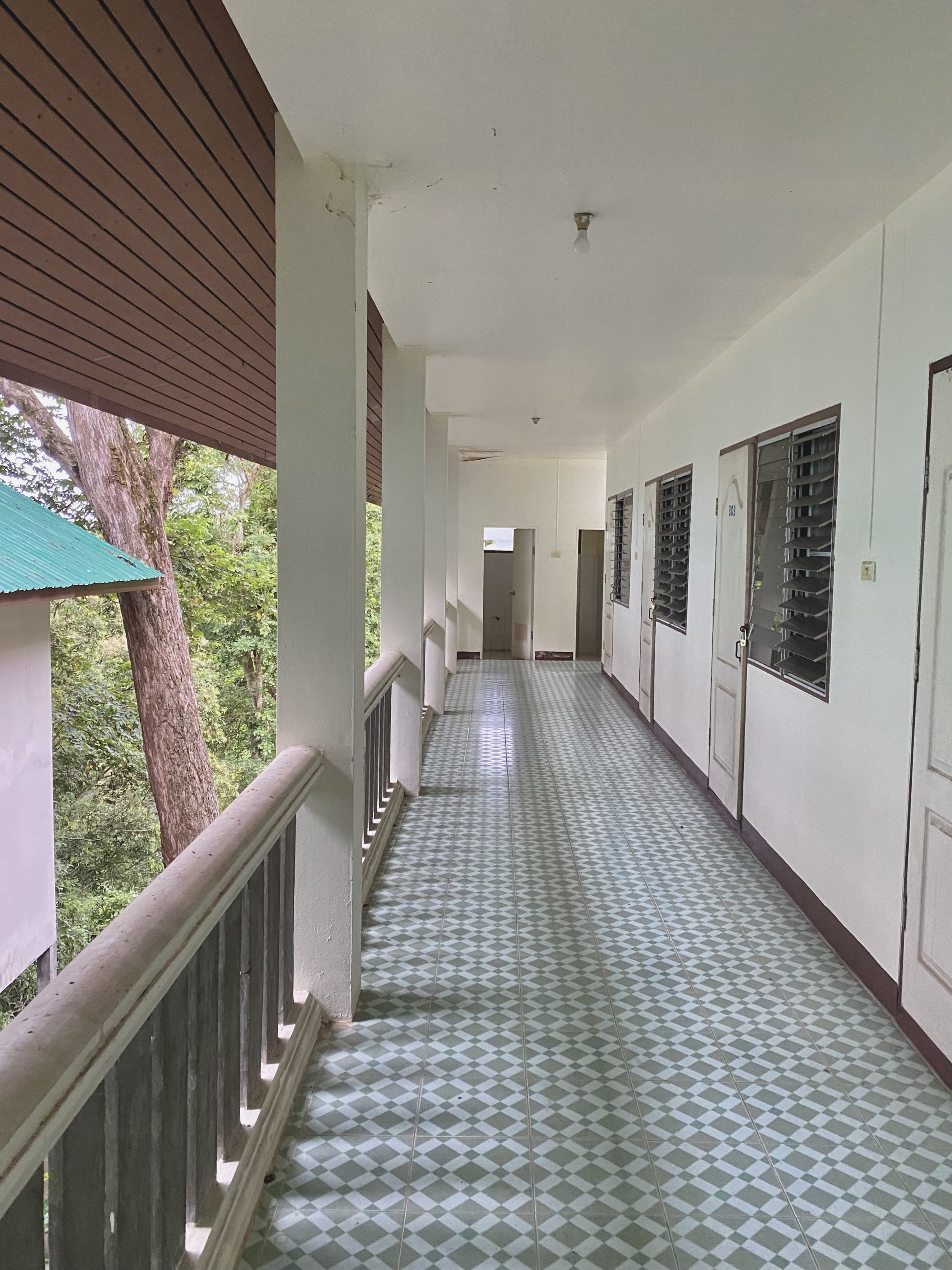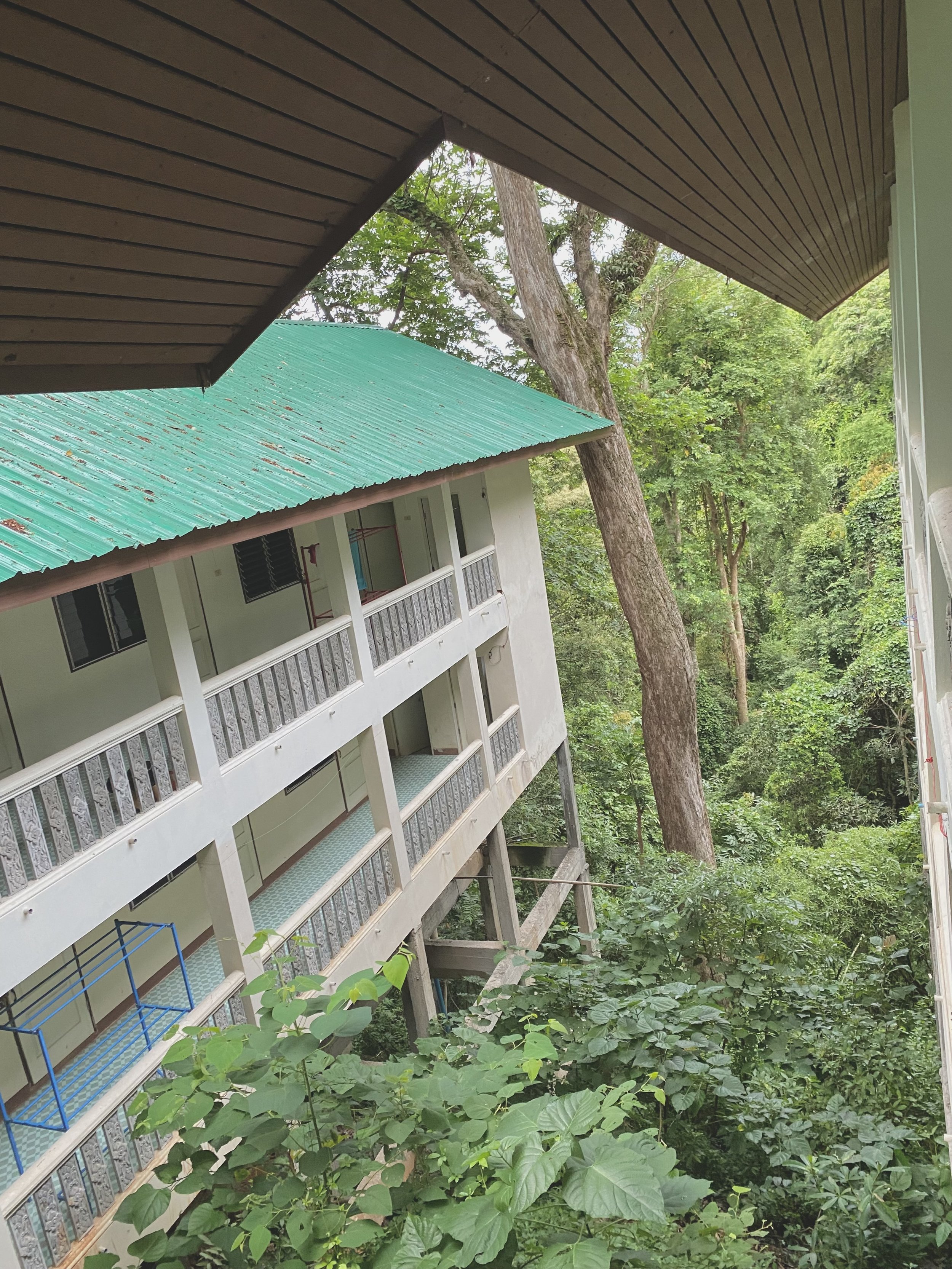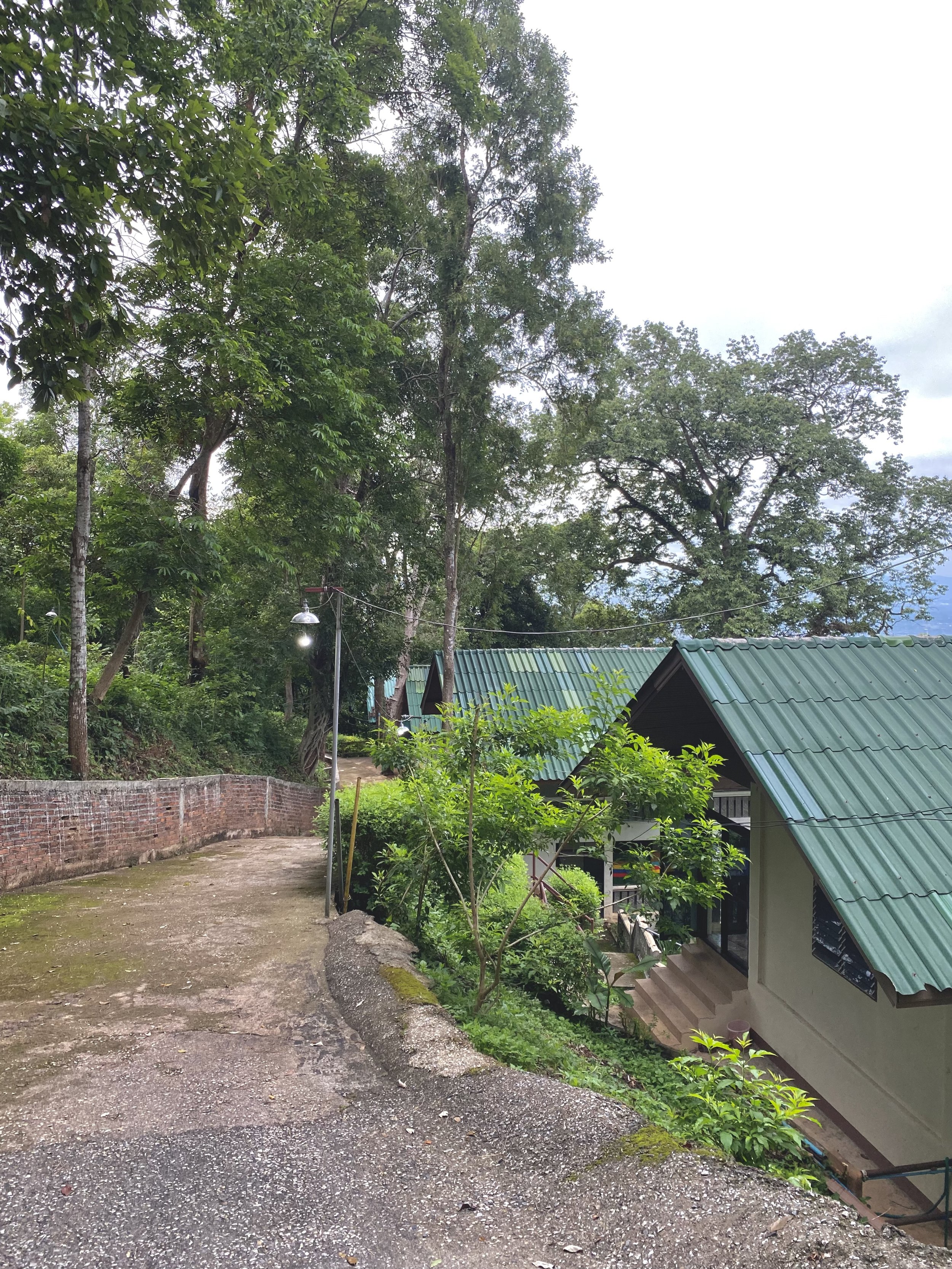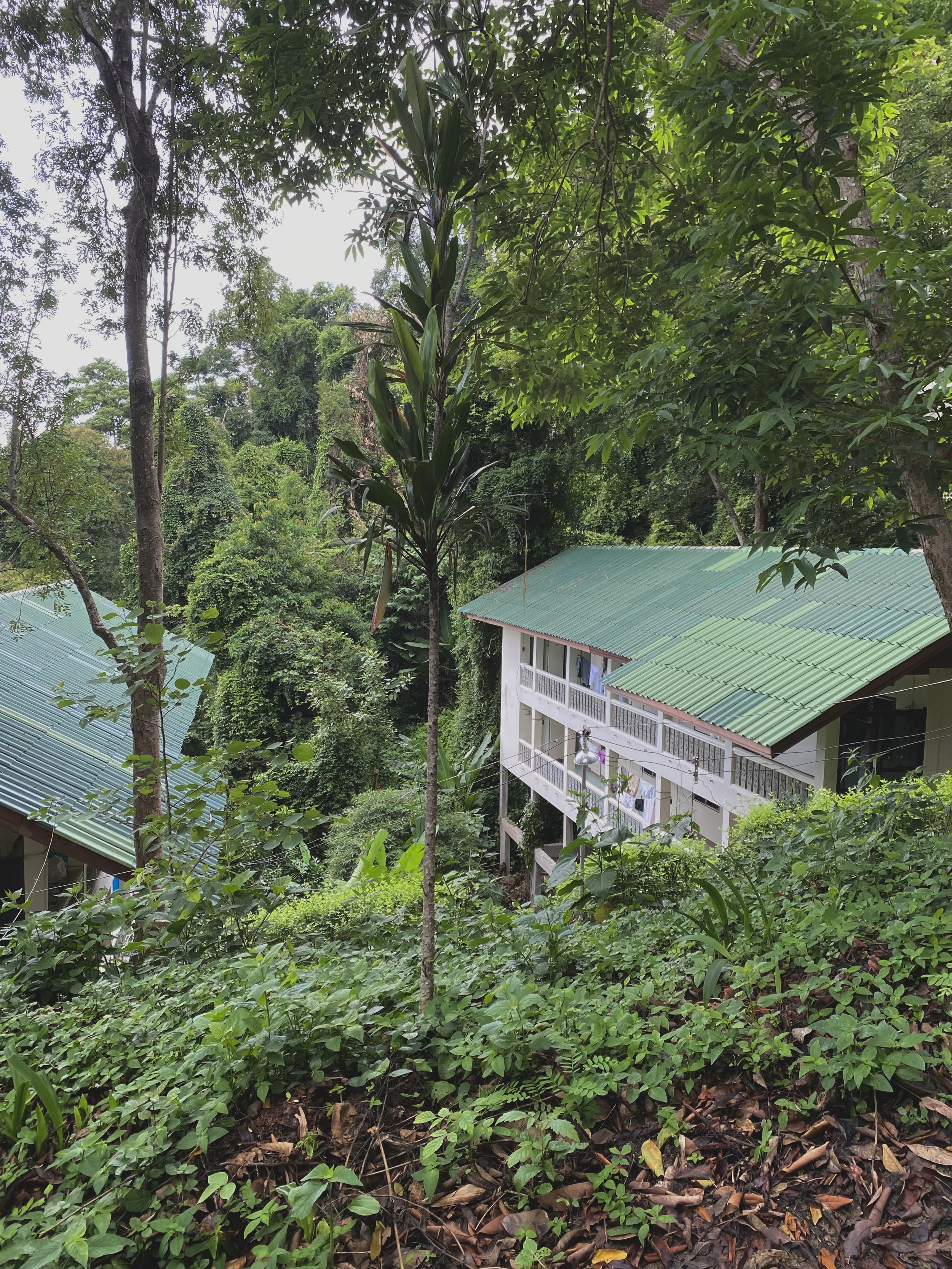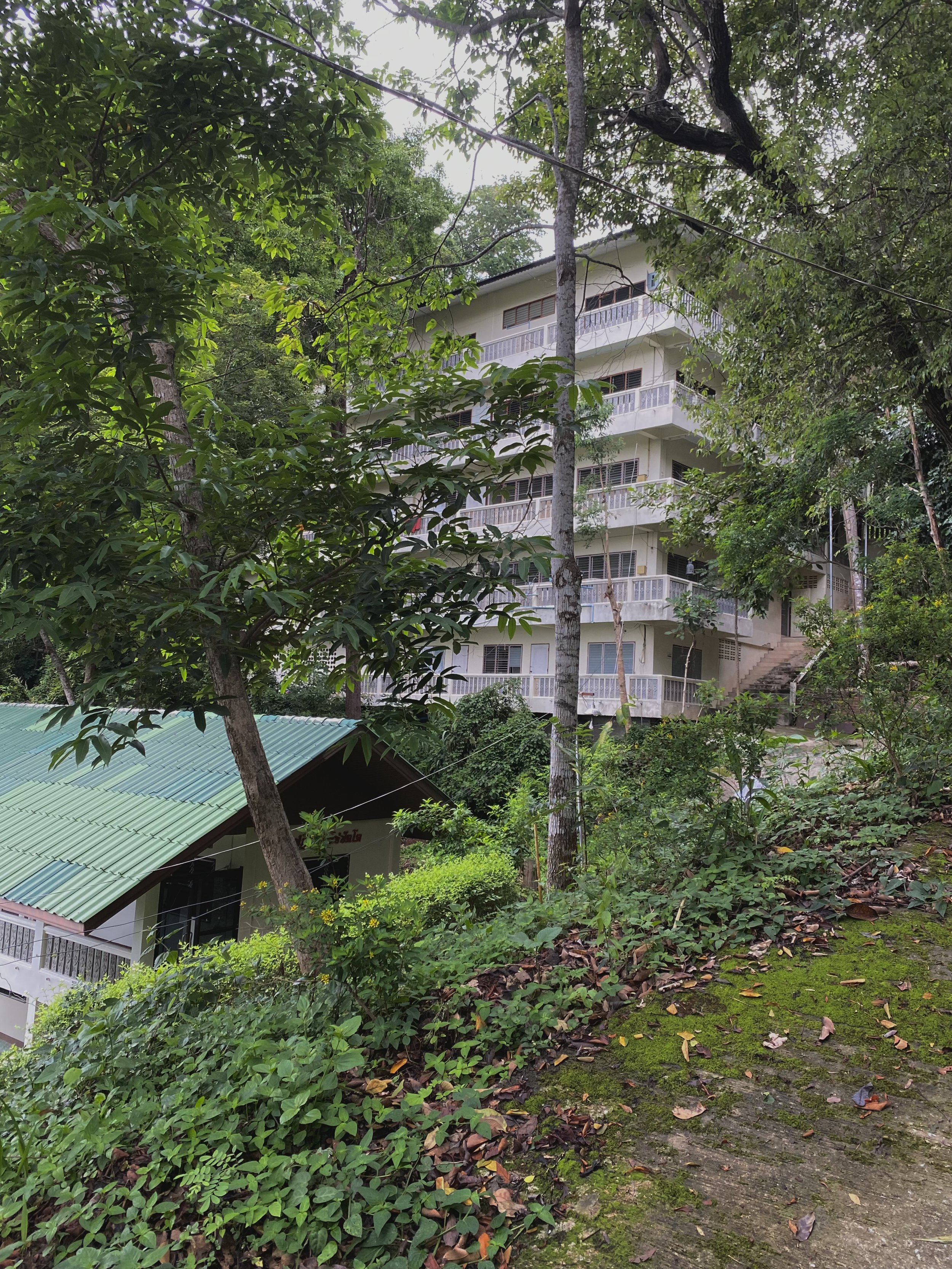Advice for the 21 Day Meditation Retreat at Doi Suthep
Do It On Your Own Terms
The International Buddhism Center at Doi Suthep in Chiang Mai, Thailand offers a 21-day Foundations of Vipassana meditation retreat. This is an unusually long offering - making it a unique opportunity to take yourself off the grid and reset. Most centers don’t go beyond 10-day programs - and most people at Doi Suthep stay for less than ten days.
The 21 day program is the hardest, most intense thing I’ve ever done. It’s physically grueling and can feel emotionally devastating. For me, it was also worth it - an opportunity for healing my nervous system and re-envisioning my relationships with my body and the world. They say it takes three weeks to make a habit - so the three week period offers a perfect opportunity to break unhealthy attachments to food, alcohol, drugs, sex, romance, smoking, music, television - or anything that you feel you have an out-of-control of relationship with. In many regards, if you can make it through, you can go back out into the world with a blank slate of sorts to restart your life.
The 21 day program is not for everyone - but you’re also not contracted into finishing if you sign up and start. You can go home any day you want. My advice, though, is if you start, do what you can to finish. You probably won’t get through it with perfect adherence to the rules or with perfect practice every day - but it’s worth doing whatever you need to make it through for as long as you can. Here’s my advice for those trying it:
Don’t Go Alone if Possible: It’s immensely comforting to know that you’re not the only person going through the 21 day program. It helps salve the feelings of isolation that will crop up in the silence. If you can find someone else to go with you, I recommend doing the 21 day program side-by-side with someone else.
Know What You’re Signing Up For: I wish I had clearer expectations walking into the retreat so that I knew what was coming. Because of that, I’m going to share what to expect. The retreat is silent - so you’re not allowed to talk to anyone else. They serve food twice a day - small vegetarian meals at 7AM and 11AM - but you are not allowed to eat solid food after noon. You are not allowed to read, write, watch television, listen to music, use your phone or computer, or have any contact with the outside world. There is no comfortable furniture; you bed will be minimalistic and there are only chairs in the dining room - and they are plastic. You are expected to wake up at 5AM each day, attend two dharma talks, chant at night, and meditate for 5-8 hours every day. Meditation will be equally split between a six-point walking meditation and a sitting meditation with a 28 point body scan. Each day, you will meet with the monk, and he will add new steps to your meditations and extend their lengths (capping at 60 minutes walking, 60 minutes sitting). The last three days of the 21 day retreat, you will be confined to your room and not allowed to sleep, shower, or lie down. You will meditate 12-20 hours a day with short, silent rests between rounds. It’s all rough and grueling - but manageable. All the rules are also entirely self-enforced, so there are no consequences if you break them.
Don’t Expect Kindness from the Monk: There is only one monk who runs the center - and he is the definition of cold empathy. You will have a brief meeting with him everyday so that he can give you next steps. However, he will be totally uninterested in your story or your questions. No matter what you ask, he will say some version of “No, no, normal. Just keep meditating.” The quicker you expect to not receive empathy or compassion for him, the quicker you will not be disappointed by these exchanges.
Enjoy the Nature: The meditation center is set in the middle of a mountain jungle, so there are some gorgeous views and walks. Whenever you need, stand on one of the balconies and look out to the scenery, or take a walk and enjoy the views. The center is intentionally austere - so the only thing warm, welcoming and beautiful is the nature. Take advantage of it and find pleasure in your surroundings.
Eat Slowly: Your two meals are small, so you will get hungry at night. Eat them both slowly, mindfully, and that will go a long way toward easing hunger pains.
Bring Something Pleasurable: The only thing at the retreat that I would classify as an unnecessary pleasure is that there are black tea leaves in the dining room. I recommend bringing something with you that offers you a pleasure outlet. Mine was herbal tea and Halls hard candy. I saw people with coffee, candy, tea, and junk food. My advice is to bring something you can reward yourself or comfort yourself with. And, if you have the room, bring enough to share. Leaving these small pleasures for free-grab in the dining room will likely make someone else’s day. (And the act of kindness may also make your day.)
Practice Self Compassion: The retreat is really hard - and all of your worst demons will rise loudly and bother you. Do everything you can to be self-compassionate. Acknowledge what’s going on in your body, offer kind words to yourself, remind yourself that you’re not alone in suffering, remind yourself why you came and what you’re hoping for, and check in with your body if it needs something. Compassionately motivating yourself instead of a using punitive just-keep-going mentality will help make the retreat easier - and is more likely to get you to the end (even if it means being imperfect).
Give Yourself Something to Look Forward To: The retreat will end at some point, so allow yourself to think about what comes next so that in your dark moments you can look forward to something. I had a few: a picture at the closing ceremony with my friend, having the retreat on my resume, a two-hour massage, a new tattoo, and a few new shirts at the Sunday market. Having something you’re looking forward to after the retreat will help remind yourself that 21 days is temporary - and that the retreat will pass.
Pick Your Order of Rules to Break: Most people don’t get through the retreat with perfect adherence to the rules. At some point, an outlet for the stress becomes necessary. Expect that you probably won’t get through 21 days perfectly - and decide what you’re willing to sacrifice at what points in order to get through as best you can. My order of rules to break was: self-sex, walking out of the temple to buy fruit, talking to someone else at the retreat, listening to music, watching tv. I broke up to talking to someone else at the retreat (we broke silence twice).
Lean Into the Pain (Unless It’s Injury): Everyone at the retreat is in intense physical pain, especially in the beginning. My advice is to sit in the pain, let it persist. Most of the pain is from stored muscle tension and lack of flexibility - and it will ease as your body relaxes and you become more flexible. Be cautious of actual injuries, though. You should be able to identify the difference between pain from tension and lack of flexibility and pain that could be causing injury - and most of the pain will fall into the first category. Not resisting the pain is how you learn to soften into it, relaxing your body and extending your flexibility.
Stretch: The retreat is physically intense, so allow yourself to release the tension in your body as much as you need. Stretch as often as you need.
Change Up Your Positions: The retreat will be more painful if you sit in the same position every single meditation. Play with your cushions and your positions, challenging yourself every day into new sitting positions. It will both be better for your body and also help to push your level of muscle relaxation and flexibility.
Try to Make it Fun: The meditations can feel super-serious. They don’t need to be. When the day is feeling grueling - ask yourself if there’s a way you can explore and be in the meditation more playfully, more creatively. It will all be easier if you’re playful with it. And if you’re struggling to find a way to be playful, try smiling.
Bend The Rules When You Need To: The monk at the meditation center is super-strict about his guidelines for meditation (hands here, legs here, order this way . . . ). If something isn’t working for you and you don’t think your experience is changing for the worse by doing it differently, do it your way. This is especially true for sitting and hand positions. Remember, you’re there to have the experience you’re hoping to have. Prioritize your hopes and needs over the monk’s. For me, that meant resting my hands on my knees instead of my lap, and breathing through my mouth during walking meditations. After I tweaked my back on day sixteen, it meant sitting on my bed instead of sitting cross-legged. It’s better to get through the whole 21 days as best you can than to burn yourself out by trying to be perfect and going home early.
Rest as Much as You Need: The retreat is physically and emotionally grueling - so rest when you need. My periods of lying on the ground and stretching between meditation cycles were my absolute favorite pieces of every day. My second favorite parts of the day were having a cup of herbal tea on one of the balconies and looking out into the jungle - something I did every day after I finished my afternoon meditation. Rest allows your body to soak in everything it’s learning and integrating during the meditations, and gives you a moment to recharge. And if you’re not sleeping well at the retreat, as was the case with me and my friend, take a nap if you need. Be kind to your body.
Believe What You Actually Believe: The monk will teach you about Buddhism every day - including what, to me, are the more supernatural and problematic aspects of the faith as practiced in Thailand. (At one point, the monk said he believes 85% of people with cancer have it because they were sad; I imagine that could be incredibly triggering for a cancer survivor. Buddhism is not disability friendly nor trauma informed - stay stay present as your best advocate.) Remember, even when you are tired and vulnerable, you don’t have to believe everything the monk says as true. Every day, you will likely find something meaningful in the dharma talks you can take back home with you. But, don’t feel obligated to believe every single thing you’re told. Stay open-minded and listen - but take in only the lessons that resonate with you as worthwhile.
Look For Signs of Solidarity: In the silence, you will have moments you feel alone in the struggle of the retreat - and this will be exacerbated by the monk’s cold empathy. At any moment, you can look around the retreat and see any number of signs every other person is struggling. Often, this manifests in people busying themselves with chores. Sometimes, it comes out in bags under eyes and dead facial expressions. Others, it manifests in sighs, stretching, or reddened eyes. If you look around when you’re suffering, it will always be clear you’re not suffering alone.
Give Signs of Solidarity: Remember, everyone is struggling. Small gestures of kindness can go a long way into helping other people get through their retreats - and make you feel better about your own. For me, whenever I bought myself fruit, I’d also grab fruit for at least one other person in a long retreat. I also left my herbal tea in the kitchen for others to use. Kindness makes the whole process easier for everyone there.
Go Home If It’s Right: Every single day of the retreat, I had to talk myself into staying. It often felt like an abusive relationship - something that filled me with anxiety and panic but also gave me the tools to feel occasional relief. I’m glad I stayed and made it through - but I also saw at least a dozen people leave their retreats early. Monitor your well-being and ask if staying is the right decision for you; if it’s not, go home when you need to go home.
Bring Cash for a Donation: The retreat is technically free but they will ask for a donation at the end. They don’t give a suggested donation - and I couldn’t find advice on how much to give anywhere. The other woman who completed the 21 day retreat with me and I each gave 10,000 baht - about $15 a day.
Look Up Kundalini Spiritual Awakening (Just in Case): During my period of sleep deprivation, I had a kundalini spiritual awakening. I lost control of my body for three hours and was moved through a series of intense asanas, stretches I had never learned and am generally incapable of. I had never heard of a kundalini spiritual awakening, so the process was absolutely panic-inducing for me, even if it was good for me. I would recommend looking up kundalini spiritual awakening before you go just in case it happens.
If you choose to do the 21 day meditation retreat, I think it’s worth saying congratulations that you’re even going to put yourself out there and try. It has the potential to be life-altering. It’s also going to be physically and emotaionlly devastating. You’re not the only person who has gone and many, many people have finished all 21 days before you. Just remember, don’t focus too much on being perfect. Be kind to yourself and do what you need to stay as long as you can.
